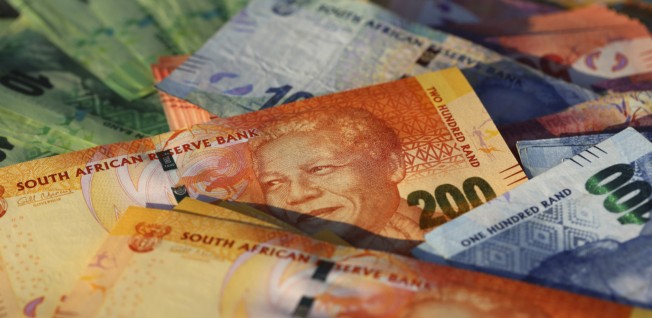Investing in a New Culture of Money

A confession: I am a white American living in an African country with a multi-racial son, struggling to understand and combat racism, and I employ a black Zimbabwean to clean my house.
Ugh. I said it! As a foreigner, or perhaps just as a white person, the decision to have someone working in my home is assumed. I made efforts to resist it, and those efforts lasted months and even years, but here I am. No matter how well I pay Lillian, the situation reeks of privilege and race systems that I don’t believe in, but people here see it as my duty to share my wealth.
A Major Culture Shock
I have loved that idea of sharing the wealth ever since I lived in a commune. I believe that if we live simply, there is enough of everything to go around. My ideals, practiced on a small scale, are based on knowing that everyone can contribute equally and thrive together. But while employing Lillian brings her closer to financial equality, it also reinforces a system where black people are scrubbing the toilets of whites. For me, this a heavy trade-off and, at the end of every Wednesday she has spent at my house, it feels like we are less equal. Still, amidst poverty and making ends meet, that salary can seem more important than my taking a moral stand. At least to her.
Even if I didn’t employ Lillian, living here makes me part of a foreign money culture, far from the commune I once lived in. Money management is one of the biggest and most permeating aspects of culture shock here in Africa. Sure, the people speak different languages, they cram onto buses, drive on the other side of the road and seem to follow no traffic rules. They also walk with a posture I can never muster, with an underlying confidence that comes from living where they have always belonged. I marvel at all of this, grateful to be able to witness it.
Amidst all the daily surprises of a life abroad, money should be one of the easier adjustments. We have banks, stores, and ATMs. And yet there is an undercurrent of informal redistribution that is very different from the States.
The Downside to Sharing Wealth
In Tanzania, those who have access to money are expected to share it with their friends or family in need. It’s a built-in financial and social safety net. If you don’t spend your own money, the moment you have it, someone else will. It is an odd sort of mini-socialism, circling out from each individual, below the gaze of the capitalist system.
In theory, I love it. However, I still experience culture shock when asked for money. There is an assumption that the white girl must always have access to it, and even if I’m broke and living off an American credit card, I technically do have access. Where I live now, asking for my money is a normal part of all relationships.
I hate being asked for money. I give someone a huge holiday bonus and the next day they need cash for their child’s school fees. Someone asks for a loan to buy a new TV, and the moment after purchasing it asks for a bigger loan for their wedding. We help someone bail their son out of jail or pay a hospital fee, yet they come back the next week with a new hairdo and asking for money to build a house.
We refused the house loan request, in part because we didn’t actually have that much money. She responded by filing a police report because my partner and I are gay, in a country where being gay is illegal. She immediately offered to retract the report as soon as we gave her the full cost of that new house. We took out a loan to pay off her extortion. I started feeling jaded.
Struggling to Find a Balance
I want to be generous, but not naïve. I want to continue my fierce belief in sharing, but I also wonder when and if I’m being used. In the United States, personal finances are just that: personal. I don’t know how much money my friends earn, or what they put away for savings or retirement, and we split the bill at the restaurant. I want to make friends with Africans, but when someone inevitably asks me for money I feel deflated.
I’m left with two options: either I redefine friendship, or I accept that it is nearly impossible to construct an equal friendship across this chasm of economic differences. Is there a balance somewhere between generosity and Sugar Mama? This constant issue is complicated. I now live in South Africa, with its astronomical crime rate, and I believe that resource-sharing and theft can be tricky dance partners. Is the crime rate really surprising in a culture where those with the most refuse to spread their wealth?
There is a redistribution force here, varying in tactic, but persistent. People take what they can, and share it with their people. Meanwhile, this country is saturated in distrust between the races and classes. White people live behind big walls and drive with their windows rolled up. Some even check inside their housekeepers’ handbags at the end of each work shift.
The Challenge of Being Kind
Comparatively speaking, us white people have so much that we don’t know how to share it, nor how much to spend to visit our distant family, nor how much to sock away into savings or retirement. These seem like trivial issues when the world around us is barely surviving. Yet if I give away everything, and max out my credit cards, what good exactly have I done for any of us? I find it irresponsible to disband the sensible western economics I’ve learned, and at the same time irresponsible not to.
It takes a commitment to communication to find our way through these economic obstacles and succeed in creating even one solid relationship, the kind of relationship where no one feels used or manipulated. Learning to trust people who are different, and treating them fairly, seems to be a challenge for all of us. In truth, it is perhaps our greatest task. How I define trust, as well as respect, generosity, and fairness is a work in progress, and I understand that it must be achieved one relationship at a time.
It’s hard. I mess up a lot. But I remind myself to err on the side of kindness. I try, for the life of me, not to grow hardened, and not leave the world as unequal as I found it.
Yesterday, Lillian said, “On the bus, people tell me I might as well steal from you, when I have a chance. And your friends, they tell you to watch out because maybe I steal from you. But your people do not know me, and my people, they do not know you. Me and you, we are the only ones here. I don’t steal from you because they say I can, and I want you to trust me even though people say you shouldn’t.”
And for a moment, I feel like we’re getting somewhere.
If you are an InterNations member and would like to contribute an article, do not hesitate to contact us!











